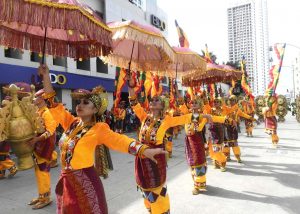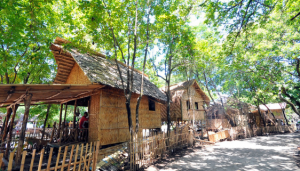The City Council approved on third reading on Tuesday’s regular session the Anti-Trafficking Ordinance of Davao City, which strengthens Republic Act No. 9208 or the Expanded Anti-Trafficking in Persons Act of 2012.
The ordinance outlined the mechanisms and identified the implementing agencies to better implement the RA 9208 as amended and expanded by RA 10364, which includes the imposition of the prescribed penalties.
As mandated, the ordinance also strengthened the Inter-Agency Council Against Trafficking – Davao City (IACAT-DC). The Integrated Gender and Development Division, meanwhile, will serve as the secretariat of the IACAT-DC.
Among other things, the council will be tasked to:
- Formulate the comprehensive and integrated programs to prevent and suppress trafficking in persons;
- Recommend relevant policies or legislative measures to the City Council;
- Establish a database on cases of trafficking in persons and trafficking incidents;
- Submit an annual report on trafficking to the Local Chief Executive;
- Create and convene a task force for case build up and case interventions.
The IACAT will be chaired by the city mayor and vice-chaired by the committee on women, children, and family relations.
Member agencies will include the City Social Services and Development Office (CSSDO); Department of Social Welfare and Development XI (DSWD XI); Overseas Workers Welfare Administration (OWWA); City Health Office (CHO); Philippine Information Agency (PIA); Sangguniang Panlungsod (SP); and the City Planning and Development Office (CPDO).
Furthermore, the Office of the City Prosecutor of Davao City (OCP); City Legal Office; Center for Overseas Workers (COW); Bureau of Immigration (BI); Philippine Overseas Employment Administration (POEA); City Cooperative Development Office (CCDO); City Department of Interior and Local Government (City-DILG), and City Civil Registry Office (CCRO) will also be part of this.
The Child Alert Mindanao (CAM); Women and Children Protection Desk (WCPD); Public Attorneys’ Office (PAO); Integrated Gender and Development Division (IGDD); Department of Labor and Employment XI (DOLE XI); and Davao City Overland Transport Terminal (DCOTT) will be members of the council as well.
This will also include the Commission on Human Rights XI (CHR XI); National Bureau of Investigation – Southeastern Mindanao Regional Office (NBI-SEMRO); and, Department of Justice XI Anti-Trafficking in Persons (DOJ-RATF XI).
The inter-agency council was cloaked with visitation powers to inspect motu proprio any establishment or house suspected to be used for trafficking in persons. The barangays will also be deputized to come up with a register of their constituents seeking employment elsewhere. Recruiters, meanwhile, have to be duly certified by the barangay.
The Ordinance also provided the initial amount of P500,000 from the general fund for its first year of implementation. Public officials who may have prior knowledge of trafficking case but fail to report it to the proper authorities will face a P2,500 fine or imprisonment of not more than six months.
Meanwhile, if the offender is a private person, the penalty shall be fine of P2,500 or imprisonment not exceeding three months.
A business permit or license shall be revoked if the owner, manager, or person in charge of establishment refuses to submit the establishment for inspection.
For the second offense, the violator will be fined P2,500 or imprisonment for one month. An alternative penalty would be community service, which involves tree-planting, cleaning of public streets, canals or collection of garbage.



